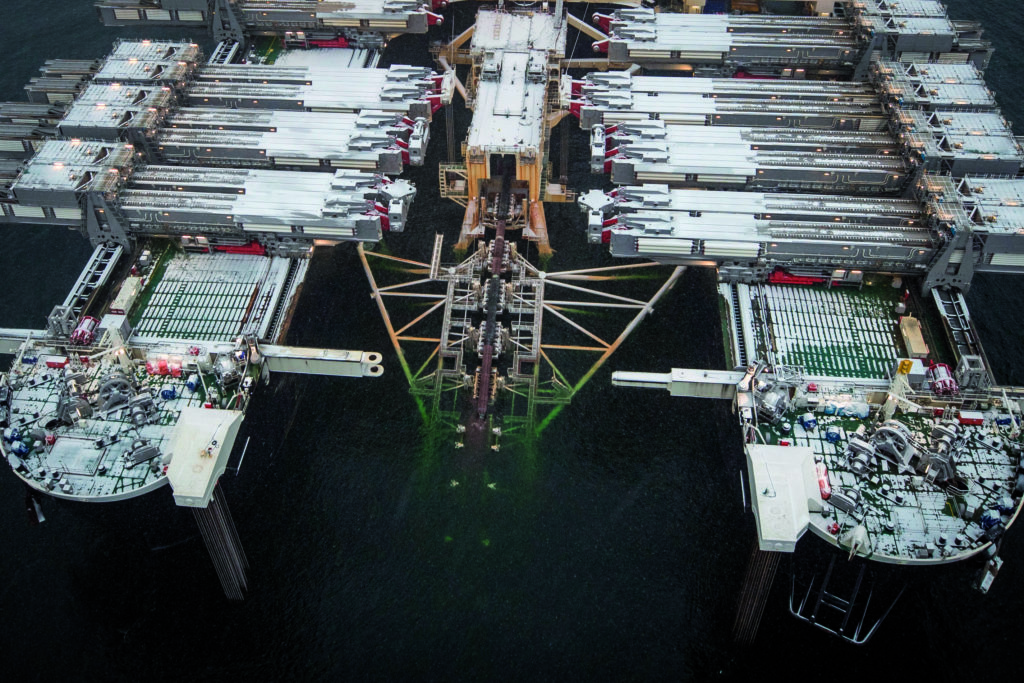
Several gas-producing provinces in Europe have confirmed a worrying trend.
The North Sea’s natural gas reserves keep dwindling while future demand will remain high.
This outlook will jeopardise the European Union’s (EU) energy security until renewable energy storage solutions becomes a reality.
Yet, and at the risk of causing more diplomatic stir amongst the 28, to whom has the Union been offering the choice of its additional gas supply?
Could the winner be the USA, Qatar or Algeria? No. The winner is…Russia.
Soon, Russia will no longer have just one set of “Nord Stream” pipelines shipping its gas direct to Germany, but two.
Russia’s total annual gas capacity to the EU will double to 110 billion cubic meters.
The introduction of “Nord Stream 2” has led the EU to pay the hefty diplomatic price of internal divisions over a project mired in paradox.
First, Nord Stream 2 will lockup the environmentally friendly EU in a sort of natural gas binge for the next decades.
Following the Fukushima incident, Germany is phasing out its nuclear stations and needs more natural gas for its turbines.
Seven of Germany’s power plants form part of the top-ten EU polluters. Germany desperately needs more gas as methane is less potent than the very polluting German lignite.
This “dash for Russian gas” is not good news for the environment. Encouraging more gas imports does not send the right message to the market, especially when no viable carbon sequestration solutions may accompany such a gas prospect.
Second, the Russian importer will be mindful to use a commercial weapon that can leverage some strategic influence against the West and NATO. These critics are part of the Green party’s arguments in Germany.
Brussels is also split. Many political voices share the aforementioned understanding. Yet, across the EU executive, Nord Stream 2 looks like a German obsession. Natural gas is vital to revamp the German power landscape and the phasing out of nuclear.
The former German chancellor Gerhard Schröder has been the staunchest Nord Stream promoter. Gerhard Schröder sits at several of Gazprom’s consortia’s boards with no fear of heightening divisions over Europe’s eastern and western diplomatic lines.
Poland, the Baltic states, Denmark in particular, are diplomatically outraged at the prospect of seeing another Russian infrastructure bypassing their territories and swerving across territorial waters.
Nord Stream 2 has brought new divisions into the traditionally solid Franco-German political duo. President Macron has never been a fan of Russian gas.
France does not really need natural gas for power generation and its new LNG infrastructure would rather eye cheaper LNG coming from the Middle East or American gas shipments.
Nord Stream’s political isolation has recently increased. After 14 months of negotiation, the EU-28 rushed a political agreement in February 2019 to reform the EU’s “Gas Directive” 2009/73/EC.
The good news is that all pipelines operators should now abide by EU competition law, further ensuring third-party access and the unbundling of ownership and operations. Transparency should truly operate and national regulators should further supervise this.
The less rewarding news is that the revised directive now contains derogations for pipelines that existed prior to the directive’s revision.
Nord Stream is one of them. In addition, Germany has secured a compromise giving it a free hand over Nord Stream 2.
Germany has been claiming the lead oversight over this infrastructure, acting as the territory “where the first interconnection point is located”. In the background, Germany has been advocating for derogations in order to become the pilot hub of Russian gas in Europe.
Whatever Germany values in Nord Stream 2 will need to meet its European partners’ red line, i.e. that the implementation of derogations should ultimately not frustrate EU competition law.
Yet, the “ownership unbundling” may turn out to be the main EU law casualty, sacrificed over Gazprom’s interests, together with a proper oversight of this supplier and its market practices.
The UK position over Nord Stream 2 has meant issuing some polite warnings to the EU when it comes to playing with double standards.
Several UK parliamentary voices definitely label Nord Stream 2 as giving to Vladimir Putin more commercial and diplomatic leverage against Europe.
Even if both sides of the Nord Stream deals actually need each other, Germany’s stance in favour of Russian gas supplies clearly conflicts with NATO and other Western commitments.
History will tell if the UK’s diplomatic action has meant securing a winning hand in the recent Danish rejection of a permit application for Nord Stream 2.
The UK has also been working on the strengthening of the regulation and gas directive because it also reads Nord Stream 2 as another Russian means for disadvantaging Ukraine and Poland.
With more Nord Stream coming on line, Ukraine is set to lose the transit fees that it currently charges to Gazprom.
For the UK, Nord Stream is also a chess game that appears in line with its own self-promoting challenges.
After all, the value of Russian gas to the UK is less than 2% of its total gas supply.
Nicolas Maulet is a lecturer in Energy Law and Policy at Robert Gordon University’s Law School
